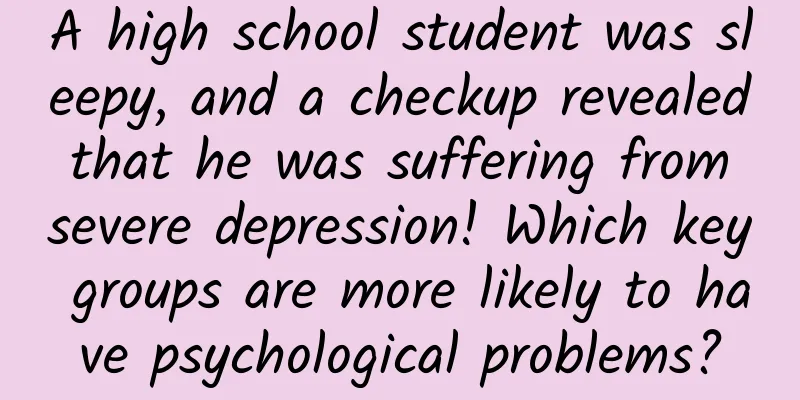Ten secrets that new programmers should know

|
You are a freshman who steps into the workplace with your diploma still smelling of ink, and is immediately confronted by the rules that are not written in the books and the various complicated daily affairs. Such stories are really common, and programming work is no exception. Few students are 100% ready for their first real job. If you don't want to be one of them, learn these 10 essential skills that you can learn without any instruction: 1. Version Control System (VCS) VCS may be the biggest omission in computer courses. These courses only remember to teach students how to write code, but often forget to teach students how to manage code. Every programmer should know how to use Git or Subversion to effectively create repositories, edit and submit code, branch and merge, and understand project workflow. 2. Learn to write Being a programmer means more than just writing code. You also write release notes for your project, write commit messages to version control, and write bug reports in your system. These and many other areas require clear and effective written communication—a skill rarely emphasized in computer science. 3. Regular Expressions Regular expressions are a language in themselves, and every modern programmer must be good at them. Every modern language supports regular expressions or has a standard library for them. If your code needs to check if a string contains 5 characters, 1 dash, and 1 digit, you should be able to write /^[AZ]{5}-\d$/ in no time. 4. Use of the library It's 2014, so nobody needs to use regular expressions to extract hostnames from URLs anymore. Every modern programming language has a standard library that performs common functions. Programmers need to understand that code that has been developed, tested, and debugged is usually better than code that you write from scratch. More importantly, code that doesn't need to be written is much faster to implement. 5. SQL Many people learn SQL at work. How can database be an elective course? Is there anyone who doesn't use database? The days of storing data in flat files are over. Everything goes in and out of the database, and SQL is the language for getting to and from the data. It is a declarative language, not a procedural one, so solving problems with it requires a new way of thinking. Every programmer should understand the basics of database normalization and be able to perform SELECT (and INNER, OUTER JOIN), INSERT, UPDATE, and DELETE. 6. Be able to use IDE, editor and CLI tools A carpenter who only knows how to use a saw will never become a master, so it is surprising that a computer science graduate only knows Notepad or pico. Programming tools help manipulate code and other data, making programmers' lives easier. So every programmer should know how to use the command line, shell scripts, find, grep, and sed. 7. Debugging Every programmer should know how to debug a program using an interactive debugger or by interspersing your code with output statements. The ability to track down a problem through step-by-step refinement is invaluable. 8. Error-proof programming Mistakes are inevitable, even for star programmers. Out of control is the norm in the world, and mistakes are not surprising. Error-proof programming understands this fact. If things can't go wrong, we won't check whether the file is successfully opened, we won't check whether the customer ID is a valid number, and we won't test whether the code is allowed to be correct. Programmers need to know that compiler warnings are useful tools that make our lives more comfortable, not troubles to be avoided. Every programmer should know why every PHP program starts like this: set_error_reporting(E_ALL) Every Perl program must contain these statements: use strict; use warnings; 9. Teamwork There is very little programming work that you can do alone. If you do it too often, your intelligence will be damaged and your performance will be weakened. Your code must interact or mix with others. Even the most talented programmers will have a negative impact on the project if they cannot collaborate with others and quickly become a burden on the organization. 10. Leverage existing code When you are in school, every assignment is a new project. But the real world is not like this. For people who have just started working, the first task they receive is often to fix a code vulnerability. Then, based on the existing code base, add a small function to the existing system. Designing new code is a matter of a few months later, if you are lucky. |
<<: Qualcomm Vice President Shen Jin: Smart hardware startups focus more on user experience
>>: WeChat 5.5 is coming! O2O highlights: card wallet and micro POS
Recommend
Is the more expensive the coffee, the better? How many misunderstandings do you have about coffee?
Is more expensive coffee better? ——How many misun...
Electric Technology Car News: Can the fierce-looking and low-priced Haval M6 break the sales myth of Wuling Hongguang?
If you usually pay attention to cars, you must kn...
Xiaohongshu’s ROI is terrible. Brands should check themselves for these 11 pitfalls!
Half a month ago, I discussed Xiaohongshu brand m...
Why HTC is in trouble: It's slowing down while the leaders are accelerating
Foreign media Arstechnica published an article th...
Douyin Promotion and Operation丨How to write a Douyin title that gets over 10,000 likes?
When it comes to new media, the first thing that ...
Experience summary | Building a user incentive system for your own APP from scratch
Recently, the company’s new product has begun pla...
[Chasing Dreams among Stars] Zhang Qianggong: Standing on the Roof of the World, Listening to the Voice of the Earth
Your browser does not support the video tag The Q...
Apple closes verification channel: iOS 15.5 cannot be downgraded after upgrade
Friends in China should be very familiar with the...
The Chang'e-6 rover will be launched around 2024 to collect lunar soil from the far side of the moon.
Recently, the National Space Administration annou...
Jixi watch mini program agent price inquiry, how much is the Jixi watch mini program agent price?
How much does it cost to be a Jixi agent for a wa...
Angel Research - Private Circle Live Broadcast
Introduction to the real-time live broadcast reso...
What is community user fission? What are the common ways of community fission?
The core of community thinking is fission. To ach...
How to put your own store on WeChat mini program? Where is the WeChat mini program?
Q: How do I put my store on the WeChat mini progr...
Who is the winner behind the competition for IPTV dominance between radio, television and telecommunications?
From the time the concept of three-network integr...
Tao Ge's "Love Map" improves love thinking and chat skills
Training course content: The course covers the at...









